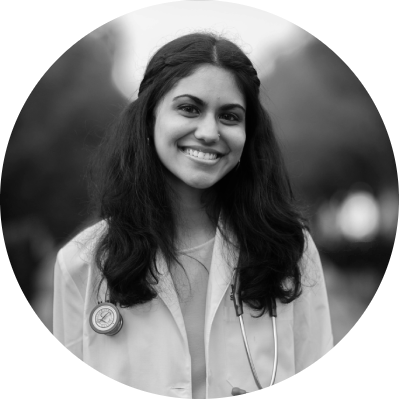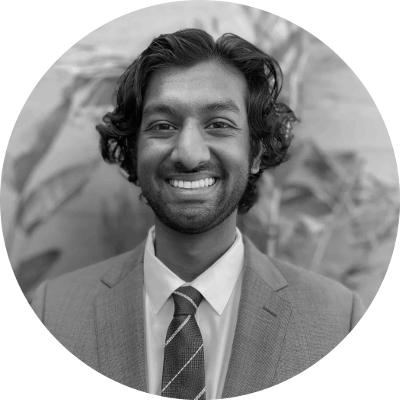Meet our team
We are a different kind of doctors organization. Our mission is to create a better future by standing up for what is sacred in medicine: our relationships with our patients.
Gabe Charbonneau, MD is a rural family physician and high-tech entrepreneur. He is the co-founder of Fluent Systems, an EHR automation software company. He serves as EHR faculty at Practicing Excellence and has been a physician advisor to the AI scribe companies, Tenor and Saykara. He is also the passionate creator of the #FightBurnout movement on social media, and FightBurnout.org. Gabe lives and practices in Stevensville, Montana.
Brian J. Dixon, MD is a psychiatrist, social justice advocate, and mental health entrepreneur. After finishing medical school at Texas A&M HSC COM and Triple Board Residency at the University of Kentucky, he founded multiple companies and movements to address the health, wealth, and cultural disparities affecting all Americans, especially those of color. He lives with his partner in Fort Worth, TX.
Louise Aronson, MD MFA is a leading geriatrician, writer, educator, and professor of medicine at the University of California, San Francisco. The author of the New York Times bestseller Elderhood, she is a regular contributor to the New York Times and the New England Journal of Medicine among other publications. Recognition of Louise’s work includes a MacDowell fellowship, four Pushcart nominations, the American Geriatrics Society Clinician-Teacher of the Year award, and a Gold Professorship for Humanism in Medicine. She lives in San Francisco.
Sanjay Desai, MD is the Director of the Osler Medical Residency and Vice-Chair for Education in the Department of Medicine at the Johns Hopkins University. He holds appointments in Pulmonary and Critical Care Medicine, General Internal Medicine and the Carey School of Business. He chairs the Executive Committee of the iCOMPARE study group whose outcomes on-duty hours in graduate medical education were recently published in a series of articles in the New England Journal of Medicine. He is also PI for an AMA Reimagining Residency grant establishing a multi-institutional laboratory measuring how to optimize clinical skill and well-being in graduate medical education.
Jenny Mladenovic, MD MBA MACP has served in several leadership roles over her 36 years in academic medicine. She currently serves as President, Foundation for the Advancement of International Medical Education and Research. She is passionately committed to advancing opportunities for women to flourish in academic medicine, and thus founded the Center for Women in Academic Medicine and Research. Prior to her current position, Dr. Mladenovic was Executive Vice-President and Provost at Oregon Health Sciences University (OHSU). Nationally, she held leadership roles in the APM, ABIM, ABMS, ASH, ACGME, and SUSME.
Emily Silverman, MD is an internist at the Zuckerberg San Francisco General Hospital, Assistant Professor of Medicine at UCSF, and creator and host of The Nocturnists, a medical storytelling live show and podcast. Her writing has been supported by a MacDowell fellowship, and published in The New York Times, JAMA, The Virginia Quarterly Review, and McSweeney’s. She lives in San Francisco.
Eric Topol, MD is the Founder and Director of the Scripps Research Translational Institute, Professor, Molecular Medicine, and Executive Vice-President of Scripps Research. He has published 3 bestseller books on the future of medicine: The Creative Destruction of Medicine and The Patient Will See You Now and latest Deep Medicine: How Artificial Intelligence Can Make Healthcare Human Again in 2019. Topol was commissioned by the UK in 2018-2019 to lead planning for the National Health Service’s integration of AI and new technologies.
Trainee Leaders
Scott Giberson Jr. is a medical student at the University of North Carolina and formerly conducted research and community outreach at UT Southwestern Medical Center. Much of his research centered around the mental health challenges of oncology patients. He is an advocate for medical student and resident well-being. Additionally, Scott advocates for equitable care for underserved communities, specifically low-income communities and communities of color. Scott received his B.S. from Texas Christian University and currently lives in Chapel Hill, North Carolina.
Kriti Prasad is a medical student at the University of Minnesota (UMN). After completing her Bachelor’s degree at Washington University in St. Louis, Kriti worked as a mental health worker and assisted with a hospital-wide trauma-informed care initiative at Hennepin Healthcare. For the past 3 years, she has conducted research on organizational characteristics associated with clinician stress and burnout under Dr. Mark Linzer. Currently, she is pursuing a Public Health Advocacy Fellowship with the Twin Cities Medical Society and serves as the UMN Twin Cities representative to the AAMC Organization of Student Representatives (OSR). She lives in Minneapolis, Minnesota.
Carly Kaplan is a medical student at Icahn School of Medicine at Mount Sinai in New York City. During her undergraduate studies at Brown University, she became a leader in the university's mental health community serving in both student leadership and partnering with the counseling center to implement interventions to more efficiently serve students' mental health needs. After graduating with a degree in Neuroscience, she spent a year working in Mount Sinai's Office of Well-being and Resilience under Dr. Jonathan Ripp, where she began work implementing well-being interventions in the hospital system and conducting research into physician and trainee burnout and well-being. Now as a medical trainee herself, she looks forward to helping to cultivate a healthier work environment for herself, her colleagues, and her future patients.
Meher Kalkat is a medical student at the Johns Hopkins School of Medicine. In her undergraduate years at the University of Florida she was the Ambassador Coordinator for the Counseling and Wellness Center and a volunteer for the Gator2Gator peer support program. In her time at Johns Hopkins, she has worked to create a peer support line for students that need emotional support or help with research navigation. She has written about the importance of dismantling required mental health reporting in medical licensing bodies. She hopes to continue fighting for clinician and trainee wellbeing on a national level.
Jordyn H. Feingold, MD, MAPP, MSCR is a resident physician in psychiatry at Mount Sinai in NYC, a well-being researcher, curricula developer, and positive psychology practitioner. Her research and clinical interests involve the brain-gut axis, mind-body approaches to complex medical and psychiatric illness, and protecting and promoting health care worker and patient well-being through the lens of Positive Medicine. She is co-author of Choose Growth: A Workbook for Transcending Trauma, Fear, and Self-Doubt, with Scott Barry Kaufman.
Nikhil Rajapuram is a medical student well-being researcher and advocate. A formerly burned-out student himself, he published the largest study of US medical student well-being since 2012 and the first to be initiated and overseen by medical students. He has worked as a Fulbright Scholar researching access to assistive technology in India, consulted for design companies on physician and patient experience, and developed peer mentorship resources for medical students. He is currently a pediatrics resident at Stanford.
The Problem
% of doctors responding with each concern
Survey of 15k doctors, Medscape 2019
Burnout 44% of all physicians - 50% women, 39% men
Suicide - 14% have thought of it, 1% (10k) have attempted it
Too many bureaucratic tasks - 59%
Too many hours at work - 34%
Increasing the computerization of practice (EHRs) - 32%
Emphasis on profits over patients - 17%
The Opportunity
Physicians do not have an organized professional society that represents the diverse people who comprise the profession. The largest organized group of physicians is the AMA (70% male, 62% white, 20% Under-Represented in Medicine, average age 49 years), but only 17% of the USA's doctors are members (2015 data), compared to 75% of doctors in the 1950’s.
The Solution
A new, grassroots non-profit organization of physicians whose actions are guided by uncompromising human principles. We advocate for changes in medicine that will impact healthcare today, and for generations to come.
Our Principles
Medicine Forward upholds these principles in strategic and programmatic decision-making:
WE BUILD ON A FOUNDATION OF WELLBEING AND TRUST for all patients and healthcare workers as our primary aim.
WE STAND UP for authentic human relationships with sufficient time and presence with every patient, cultivating optimal communication, empathy, and care.
WE PUT HUMANISTIC PATIENT CARE FIRST before the business of medicine.
WE BRING PHYSICIANS TOGETHER from diverse backgrounds and communities to discover and elevate our shared voice.
WE CLAIM OUR POWER as change agents passionate about a much better future for healthcare for all.
WE SPEAK UP for health equity and challenging the status quo.
WE CONFRONT the transformational challenges that lie ahead for the medical profession with grassroots advocacy and disruptive innovation.
Traction
We have already attracted some of the top leaders with diverse backgrounds in medicine today
We are poised to reach a broad network of influencers
Structure
Non-profit - 501(c)(3)
$5/y membership
Use of Funds
Grow and support our community
Operating expenses: website, social network, content creation, events, travel, salaries, fundraising
Frequently Asked Questions (FAQ)
How will we have impact?
American healthcare is broken. If the solution were easy, we wouldn’t be here. Since Dr. Topol’s piece came out in the New Yorker, we’ve had bi-weekly strategy meetings and culture sessions, and brought in passionate leaders from around the world to discuss how we can make a difference. Our most important achievement thus far has been refining a mission (“reclaiming the soul of medicine”) which resonates strongly with American physicians, who are experiencing moral distress and a desire for something better. We will be steadfast in honoring our mission as we grow resources and move to action.
Why is membership $5?
We want to make it crystal clear that this organization is 100% about the patient-physician relationship, not profit. Your membership provides resources to enable our advocacy together. This includes growing and supporting our Mighty Network community, events, content creation, and fundraising for impact.
What about patients?
Some have asked why we don't have patients on our leadership team. The truth is, we do. We are physicians, but we are also patients. Right now, our organization exists to consolidate physician voices. But, authentic partnerships with patient advocacy organizations will be key as we strive to focus on what is most sacred in medicine: the patient-physician relationship.
What about PA’s and NP’s?
Physician Assistants and Nurse Practitioners are our colleagues, and a vital part of healthcare teams. This organization was not created to be exclusive, but instead to take ownership of the problems unique to physicians. We embrace collaboration with all value-aligned groups.
How can I get involved?
We have evolving opportunities for involvement, which will be more structured in the months ahead. Our highest priority now is raising awareness about the existence of our organization, and bringing together as many physician voices as possible as members of our community. So, please join us as a member, and tell your friends. Joining also gives you access to our Mighty Network, where we there is an ongoing dynamic conversation about what this organization can and should do. We are actively recruiting leaders, and continually assessing our blind spots. Your honest feedback is vital.
Questions, comments, and feedback are always welcome
We are committed to doing our very best to develop this organization to serve our mission of restoring & protecting the patient-physician relationship













